News
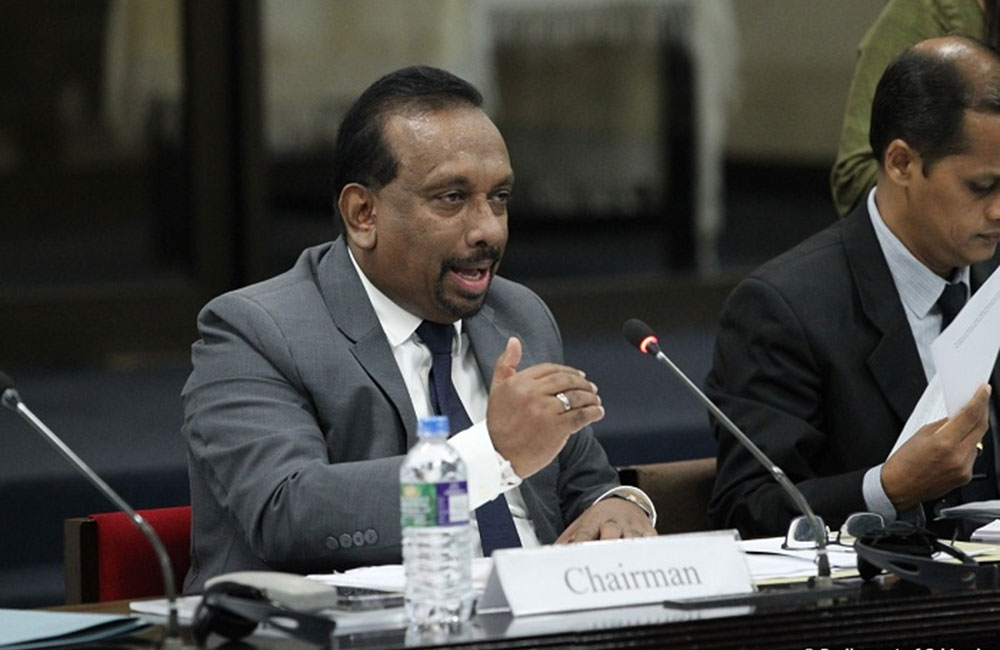
Only 31,000 pay personal income tax: MP Aluthgamage
Only 31,000 pay tax from a total of 500,000 personal income tax files in Sri Lanka, Chair of the Sectoral Oversight Committee on National Economic and Physical Plans MP Mahindananda Aluthgamage stated.
According to a statement from the Parliament of Sri Lanka, the MP pointed out that there are 105,000 registered limited companies in the country, but 82% of the tax revenue is received from only 382 companies.
MP Aluthgamage also emphasized that it is important to maintain the inflation, the reserves of the country and the government’s income in an optimal condition by December by the time of the second review of the International Monetary Fund, given that the said factors must be taken into account when granting loans.
He further stated that therefore, his Committee will hold regular discussions with Sri Lanka Customs, Excise Department and Inland Revenue Department to provide necessary facilities to increase the state revenue.
MP Mahindananda Aluthgamage made the remarks when the Sectoral Oversight Committee on National Economic and Physical Plans met in Parliament recently (July 06).
During the meeting, the MP spoke at length about the failure of the Inland Revenue Department to collect the tax revenue and stated that the Committee is making positive improvements in this regard. There was also a discussion about the collection of 904 billion rupees in arrears which is due to the Inland Revenue Department.
MP Aluthgamage also pointed out that discussions are being held with the Minister of Justice to amend the Inland Revenue Act. The MP has expressed his intention to provide his utmost assistance to fill the existing employee vacancies in the Inland Revenue Department.
The Inland Revenue Commissioner General who spoke on the occasion said that he appreciated the support received from the Sectoral Oversight Committee on National Economic and Physical Plans to make the work of his department efficient.
The Commissioner stated that the tax revenue target given by the government for the year 2023 of Rs 1.6 trillion was expected to be earned by 40% in the first 6 months and 60% in the remaining 6 months, and the target for the first 6 months has already been met. He further stated that work is being done to generate expected tax revenue in the remaining 6 months.
MP Aluthgamage emphasized the need to establish a systematic mechanism to regulate the collection of tax revenue. Members as well as officials pointed out that due to the fact that the data provided for the registration of companies in this country is not true, they have to face problems in tax collection.
The Committee also discussed at length the need to establish a digital data system linking the Sri Lanka Customs Department, the Excise Department and the Inland Revenue Department as soon as possible, as well as the need to re-register the private tax file in the country.
Members of the Committee MPs Wimalaweera Dissanayake, Eran Wickramaratne, Sudath Manjula, Gunathilaka Rajapaksha, Dhammika Perera, Udayana Kirindigoda, Karunadasa Kodithuwakku, Madhura Withanage, and Mohomad Muzammil were present at the Committee meeting.
A group of officials including the Inland Revenue Commissioner General was also present at the Committee meeting.
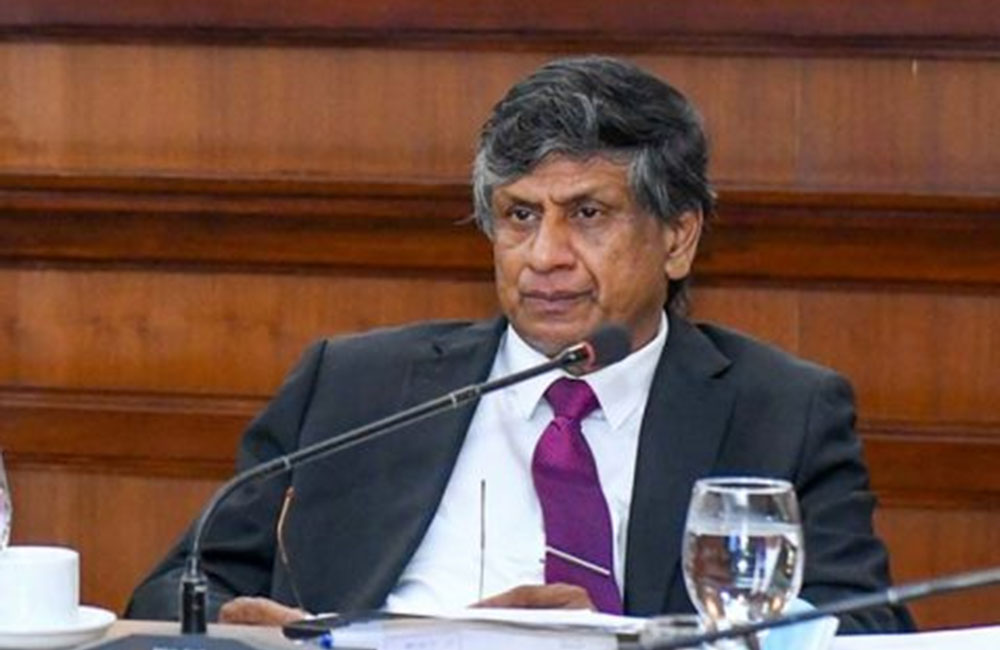
President’s Secretary writes to Ministry Secretaries on attending P’ment Committee meetings
President’s Secretary Saman Ekanayake has sent an official letter to all Secretaries to Ministries regarding attending meetings of the Committees of Parliament.
Accordingly, Mr. Ekanayake sent the letter today (06 July), while Parliament Speaker Mahinda Yapa Abeywardena and newly-appointed Secretary General of Parliament Kushani Rohanadeera were also copied, the President’s Media Division (PMD) reported.
It has been reported that in the letter of concern, Ekanayake stated that in the event the Opposition Leader wished to summon public officers for a meeting due to be held within the premises of the Parliament, he will be required to inform the relevant Minister, in writing, of the matter, who will then sanction the required officers to attend the meeting.
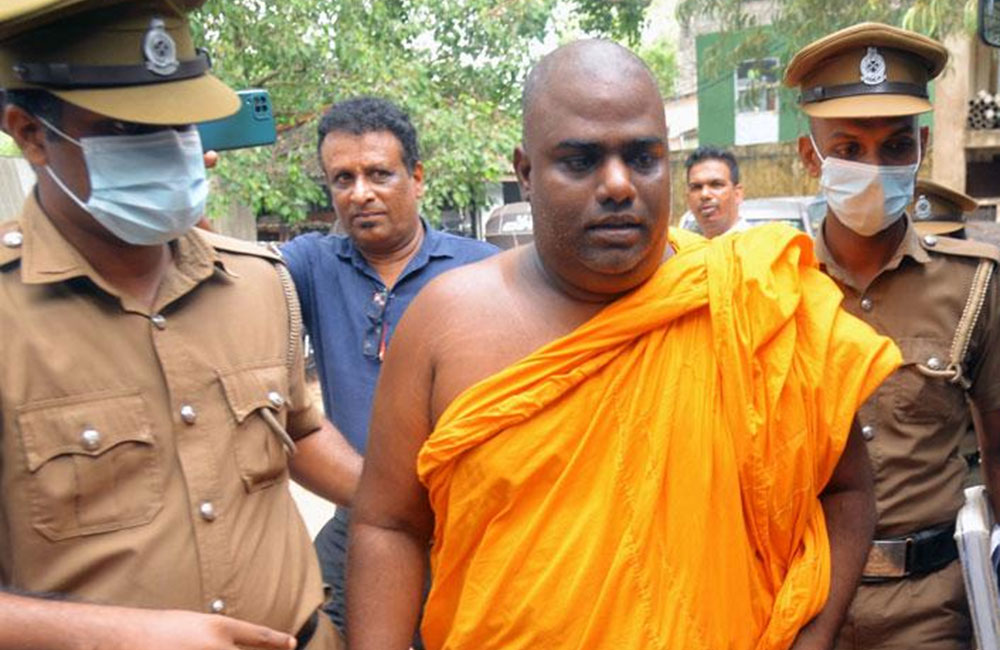
Ven. Rajangane Saddharathana Thero granted bail
Venerable Rajangane Saddharathana Thera who was arrested and remanded for making statements that could disrupt religious harmony, has been granted bail.
Venerable Rajangane Saddharathana Thera was granted bail by the Fort Magistrates Court today.
He was arrested in Anuradhapura in May based on a complaint filed by a fellow monk, Venerable Pahiyangala Ananda Sagara Thera.
In the complaint, Venerable Rajangane Saddharathana Thera was accused of having made comments that harm religious co-existence and those disrespectful to Buddhism.
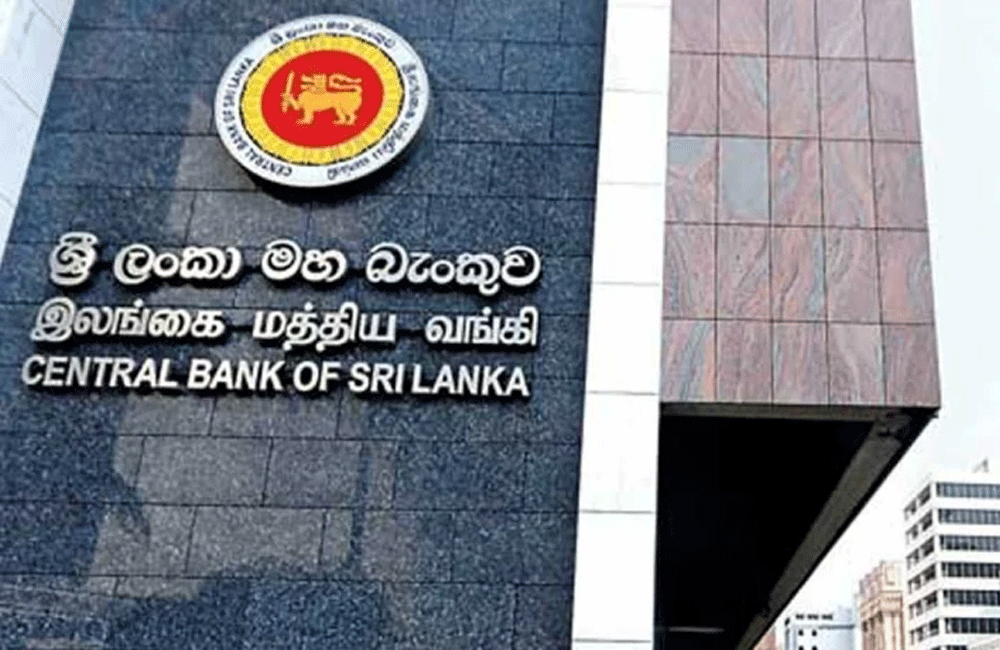
Central Bank further reduces policy interest rates
The Monetary Board of the Central Bank of Sri Lanka (CBSL) has decided to reduce the Standing Deposit Facility Rate (SDFR) and the Standing Lending Facility Rate (SLFR) of the Central Bank by 200 basis points (bps) to 11.00 per cent and 12.00 per cent, respectively.
The Board arrived at this decision, at its meeting held on Wednesday (05 July), following a careful analysis of the current and expected developments, including the faster-than-envisaged disinflation process and benign inflation expectations in the domestic economy, with the aim of enabling the economy to reach its potential and stabilising inflation at mid-single digit levels in the medium term, while easing pressures in the financial markets, the CBSL said.
The Board expects that, with this reduction of policy interest rates by 200 bps, and the reduction of policy interest rates by 250 bps in early June 2023, along with the significant reduction of risk premia on government securities witnessed recently, the market interest rates, particularly lending rates, will adjust downwards adequately and swiftly.
“Therefore, the banking and financial sector is urged to pass on the benefits of this significant easing of monetary policy by the Central Bank to individuals and businesses, thereby supporting economic activity to rebound in the period ahead,” the statement said.

X-Press Pearl disaster: SC calls for report on compensation measures
The Supreme Court on Monday (10 July) ordered that a report on the measures taken to compensate those affected by the X-Press Pearl disaster, and the progress in this regard, be submitted to the court before 15 September.
The relevant order was issued by a Supreme Court bench comprising of Justices Murdhu Fernando, Shiran Gunaratne, Achala Wengappuli and Priyantha Fernando when the case was taken up in court this morning (10).
While the attorney who appeared on behalf the fishing community raised concerns that they are yet to receive compensation for the massive losses suffered due to the X-Press Pearl disaster in 2021, Additional Solicitor General Nerin Pulle, appearing on behalf of the Attorney General, assured that measures are underway in this regard.
Bench chair Justice Murdhu Fernando then ordered that the process in this regard must be expedited, and ordered the lawyers of the fishing community to file the compensation requests before other relevant institutions including the Marine Environment Protection Authority (MEPA).
The relevant petition is due to be called before the court again on 05 and 06 October.

Laugfs Gas also slashes prices
Laugfs Gas PLC, one of the two largest liquefied petroleum (LP) gas suppliers in the country, has also decided to reduce the prices of its domestic gas cylinders following the significant price revision announced by Litro Gas earlier this week.
Accordingly, the price of a 12.5 kg cylinder of Laugfs LP gas has been reduced by Rs. 300, bringing down the price to Rs. 3,690.
The revised prices are as follows;
12.5kg cylinder – Rs. 3,690 (reduced by Rs. 300)
5kg cylinder – Rs. 1,476 (reduced by Rs. 120)
The Laugfs Gas Company said the price reduction, effective from midnight today (July 06), was made in a bid to directly provide the benefit of the recent price drops in the global market to the consumers.
The general public can access further details regarding the price revisions, and the district-wise prices of the gas cylinders by contacting the ‘1345’ hotline, the company added.
Meanwhile, Litro Gas Lanka had also slashed the prices of its domestic gas cylinders substantially this week:
12.5kg cylinder – Rs. 2,982 (reduced by Rs. 204)
5kg cylinder – Rs. 1,198 (reduced by Rs. 83)
2.3kg cylinder – Rs. 561 (reduced by Rs. 37)
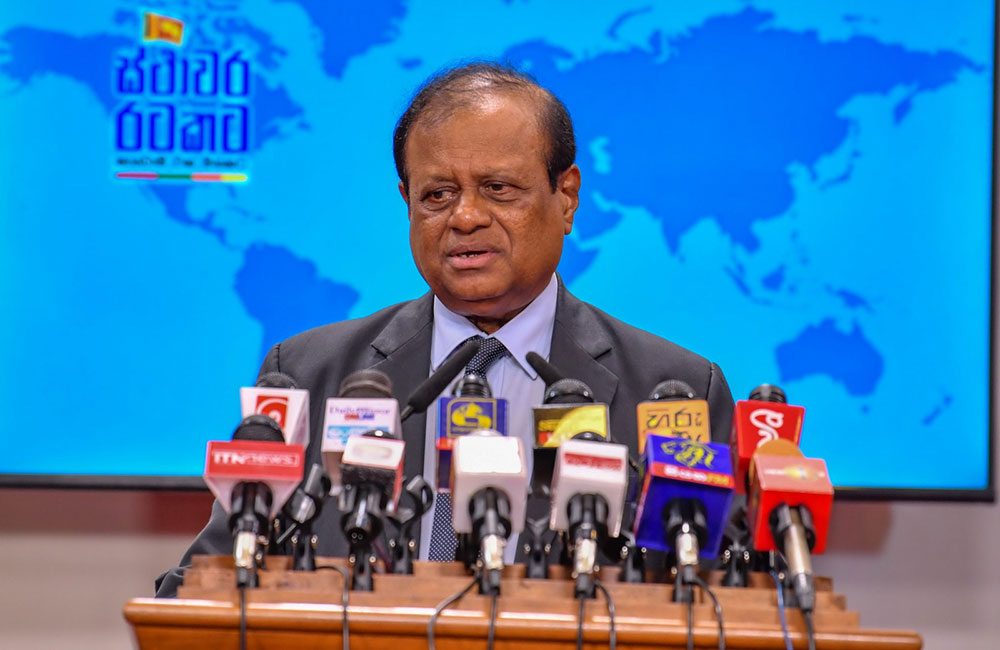
Country’s education system to undergo transformation – Minister
Minister of Education Susil Premajayantha has revealed that the country’s education system will undergo an educational transformation and essential measures will be taken to produce students who are prepared for the twenty-first century.
Speaking at a press conference held at the Presidential Media Center (PMC) themed ‘Collective Path to a Stable Country’, the Minister stated that human resources will be managed for that purpose and education will be reformatted in accordance with global standards in order to produce a sustainable and high-quality education.
The Minister added that the ‘Suraksha Sisu Rakshanaya’ insurance scheme introduced for school children which was suspended due to the financial crisis will resume in 2024.
Speaking at the occasion, Premajayantha further commented; In developed countries, the Ministry of Education acts as a separate entity from the Central Government and a Provincial Minister is in charge of the Ministry of Education. The educational rights of children in countries like India, Canada and Japan have been safeguarded as a result of this educational pattern.
The Ministry of Education in Sri Lanka is under the control of the Central Government. All schools in our country, with the exception of 399, are governed by the Provincial Ministries of education.
The initiative to establish 1,000 national schools was launched in 2001. When the 13th Constitutional Amendment was initiated, there were 17 national schools in this country. However, as a result of political initiatives or the requests of individual Education Ministers, there was a dramatic rise in the number of national schools.
However, one cannot say that it led to high-quality education. There was a period in time when 28 national schools were created overnight. But right now, the education industry needs to undergo a transformative change. Instead of the exam-centred education system, students should be aligned in a student-centred education pattern.
There was a significant setback in education as a result of Covid-19 and the recent economic downturn. Additionally, socio economic issues made it impossible to run the schools effectively due to fuel and gas concerns.
Federation of University Teachers’ Associations (FUTA) and Teacher trade unions did not attend to evaluate the answer sheet of the Advanced Level examination.
The evaluation of the A-Level exam questions has been completed, and that matter is now resolved. I think the exam results could be released in the middle of the next month. The A-Level exams for this year are scheduled to take place in December, according to the Ministry of Education. The Ministry of Education has taken steps to hold all the examinations in the prescribed year.
Also, the program needed to reform the new education is currently being implemented. Plans have been made to start teaching activities through English medium in association with the British Council. For this purpose, 13,800 teachers have been trained so far. The updating of textbooks for English was also started promptly.
The addition of Artificial Intelligence and Information Technology to the curriculum is proposed for two grade levels, Grade 6-9 and Grade 10-13. We are attempting to secure Information Technology assistance for this from companies like Microsoft.
About fifty principal positions are open. While conducting a competitive examination for the recruitment, a trade union went to court and got an injunction. For the recruitment of teacher administration services, there are roughly 22000 openings.
Government employees who applied for the position have also gone to court to explain why they are unable to take the competitive exam. The recruitment process has thus far been delayed as a result. Due to 100 people’s human rights being brought up in court, 4.2 million students’ human rights have already been violated. As a result, we think the court will rule on this issue quickly.
We are working to continue the ‘13 plus’ education program presented by the President when he was the Prime Minister. A selection committee has been established to expand the education sector and the necessary proposals are currently being prepared. Accordingly, the necessary program to expand education will be prepared jointly with Non-Governmental Organizations in the future.
Arrangements are being made to provide loan facilities to Non-Government Universities as well as to create an environment where they can contribute to the economy of this country. It is intended to establish a training University in Kotagala to train students who choose to go to a plantation in order to safeguard the educational rights of the children of estate workers.
By substantially bolstering the regulating program of private and international schools, we are committed to ensuring children’s right to education. With regard to all of these issues, we are working to bring about a change in education from next year.

Sri Lanka to revive scrapped Japan-funded LRT project
The Sri Lankan government has decided to initiate diplomatic discussions with Japan on the revival of the Japan-funded Light Rail Transit (LRT) project.
The Cabinet of Ministers on Tuesday (July 04) approved a proposal made by President Ranil Wickremesinghe on the matter.
Accordingly, the government will prepare a timeframe to revive the previously scrapped LRT project and enter into an agreement following discussions with the Japanese diplomatic mission in Colombo.
In March 2019, the Japanese government agreed to grant loan assistance of USD 1,800 million for the LRT system project which was to be implemented that year and completed by 2026, as a solution for the traffic congestion in the city of Colombo and its suburbs.
Japan International Cooperation Agency (JICA) had agreed to provide financial facilities under concessionary credit conditions while the Oriental Consultants Global Company of Japan had agreed to provide consultancy services in collaboration with several other companies.
On March 11, 2019, Japan and Sri Lanka signed the loan agreement and exchanged notes pertaining to the project, which had been designed to construct a 17km-long elevated rail track including 16 stations to cover important and major intersections from Malabe to Colombo Fort.
Under the project, it had been proposed to deploy 25 trains for the service and each unit was supposed to comprise four air-conditioned passenger compartments to accommodate 800 passengers
The total estimated cost of the project was Japanese Yen 246,641 million, and JICA was to provide JPY 200,415 million (approximately USD 1,800 million) as a concessionary loan. The company had provided the facility of paying the said loan over a period of 40 years including a grace period of 12 years and the annual interest rate thereon was 0.1 percent.
However, in September 2020, the then-Cabinet of Ministers gave the nod to terminate the project citing heavy operating costs, and environmental damage among other reasons.
A report compiled by the National Audit Office in December 2022 revealed that Sri Lanka incurred a loss of Rs. 5,978 million after former President Gotabaya Rajapaksa-led government unilaterally terminated the LRT project.
In May 2023, the current Cabinet of Ministers decided to green-light the revival of the project days before President Wickremesinghe departed for Japan for an official visit. The decision was taken in a bid to restore Sri Lanka’s credibility with the international community.
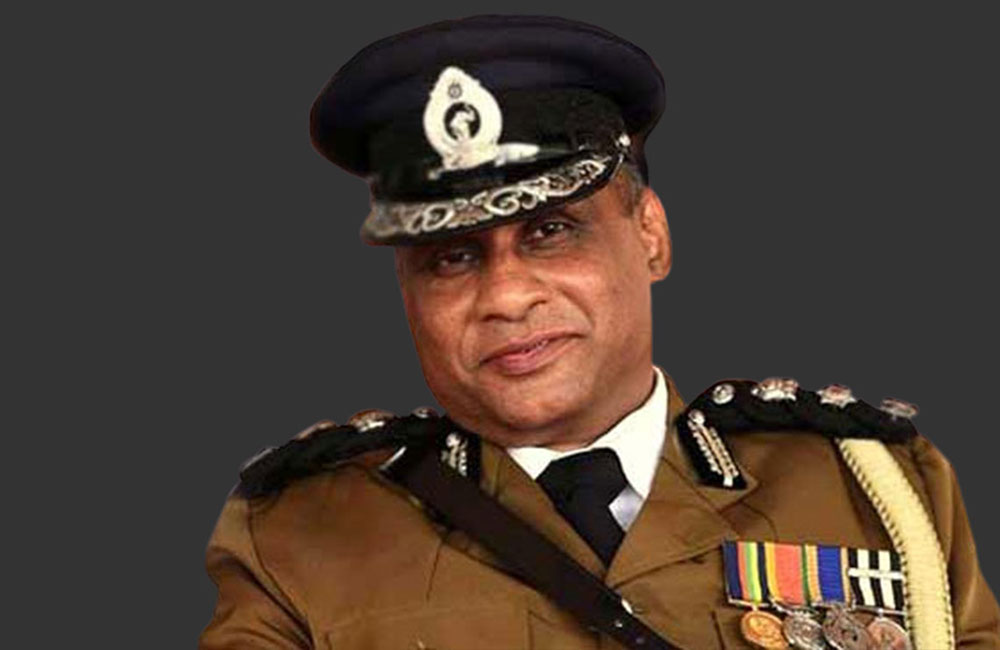
No new IGP : Former gets three months extension
President Ranil Wickremesinghe has granted C.D. Wickramaratne another service extension as the Inspector General of Police (IGP), the Public Security Ministry said.
Accordingly, IGP Wickramaratne has been granted a 03-month service extension from today as the police chief, subject to the approval of the Constitutional Council, according to the President’s Media Division (PMD).
A special meeting took place between the President and the Public Security Minister this evening (July 09) to decide on appointing a new Inspector-General of Police (IGP) due to impending retirement of Wickramaratne.
Meanwhile, President Wickremesinghe had reportedly tasked Minister Alles with deciding whether former IGP C.D. Wickramaratne should be given another tenure extension or an Acting IGP should be appointed.
Wickramaratne was initially supposed to retire from the police service on March 26, 2023, however, President Wickremesinghe extended his tenure by three months until June 26 by way of a special gazette notification dated April 06.
Thus, the position of IGP was set to be vacant since the end of Wickramaratne’s tenure on 26 June.
Senior Deputy Inspector-Generals of Police (SDIGs) Deshabandu Tennakoon, Nilantha Jayawardena, Lalith Pathinayake, Priyantha Weerasooriya and Ajith Rohana were reportedly among the nominations for the top post of the police force.

Natasha Edirisooriya granted bail
Stand-up comedian Natasha Edirisooriya who was arrested and remanded on charges of having insulted Buddhism, was released by the Colombo High Court on a personal bail of Rs. 100,000 today (05).
Natasha was charged under the provisions of the International Covenant on Civil and Political Rights (ICCPR) Act.
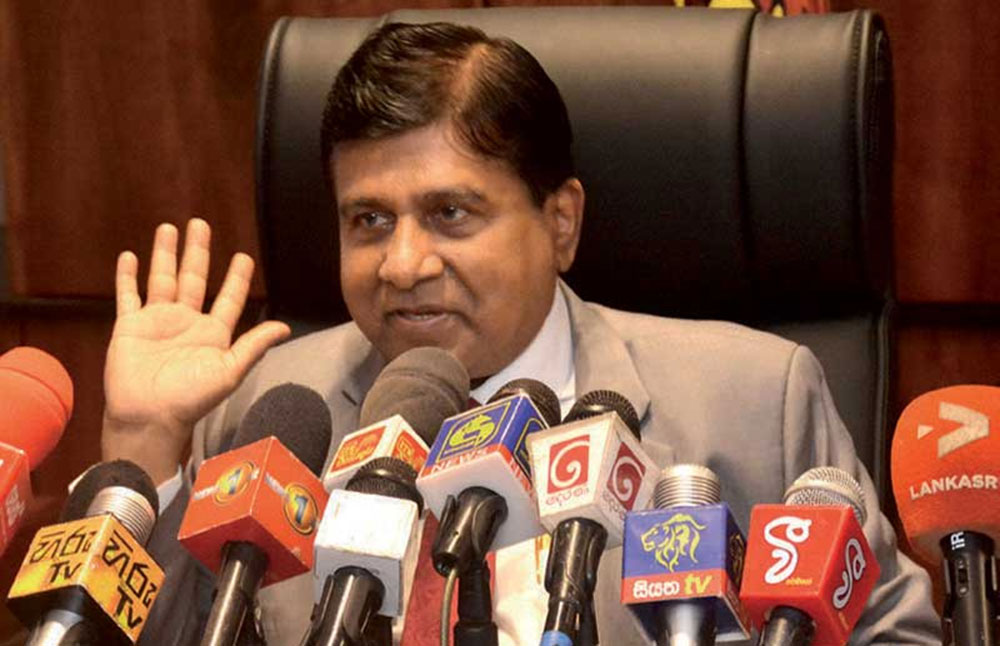
Tax Appeals Commission to be annulled
The Tax Appeals Commission will be annulled due to an inefficient tax appealing process, said justice minister Wijayadasa Rajapakshe.
A special act will be tabled in parliament soon for the purpose, he said.
The commission had not filed a single court case in the past two years, said Rajapaksa, adding that delays in taking up appeals has lost the opportunity to collect more than Rs. 117,000 million defaulted tax income.
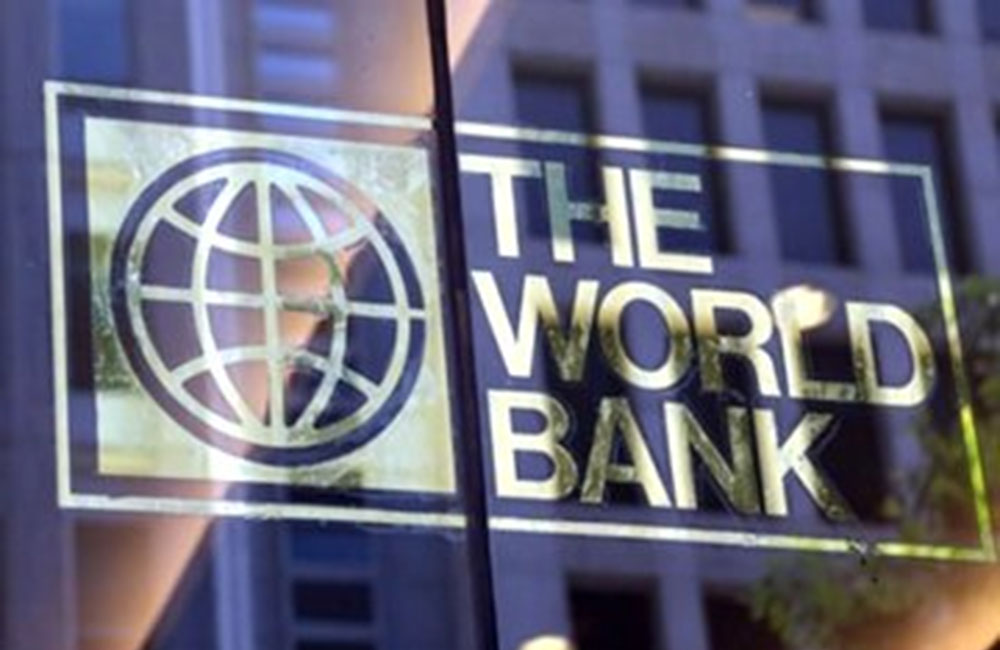
Sri Lanka gets USD 250 Mn from World Bank budget support program
Sri Lanka's State Finance Minister Shehan Semasinghe said that the 1st disbursement of USD 250 million from the World Bank Budget Support program was received on Tuesday (4).
On the 28th of June 2023, the World Bank Board of Directors also approved $700 million in financing for two operations to help Sri Lanka implement foundational reforms that restore macroeconomic stability and sustainability, mitigate the impact of current and future shocks on the poor and vulnerable, and support an inclusive and private-sector-led recovery and growth path.
The Sri Lanka Resilience, Stability and Economic Turnaround (RESET) Development Policy Operation ($500 million) will support reforms that help improve economic governance, enhance growth and competitiveness, and protect the poor and vulnerable. It will provide budget support in two equal tranches against agreed prior actions.
The Social Protection Project ($200 million) seeks to support Sri Lanka in providing better-targeted income and livelihood opportunities to the poor and vulnerable and improving the responsiveness of the social protection system.
The active World Bank portfolio as of June 26 is composed of IBRD financing worth $1.09 billion and IDA financing worth $1.17 billion. Sri Lanka lost IBRD creditworthiness and cannot access additional IBRD financing. Upon the Government’s request, a reverse graduation to regain access to IDA concessional financing was approved. Until IBRD creditworthiness is re-established, Sri Lanka will have access only to IDA resources.
The CPF will leverage the close cooperation across the World Bank, IFC, and MIGA and with development partners.
As the largest global development institution focused on the private sector in developing countries, IFC has invested close to $1 billion in Sri Lanka since the onset of the COVID-19 pandemic, helping businesses and sustaining jobs. Recently, IFC provided a cross-currency swap facility to three of the country's leading national banks that deal with over 30 percent of Sri Lanka's remittances and exports. The facility intends to support the private sector with critical financing, contributing to the country's urgent need to stabilize the economy. IFC will continue its efforts to promote private sector led growth by supporting innovation, product diversification, growth-enabling sustainable infrastructure as well as in deepening social and financial inclusion.
Page 239 of 660